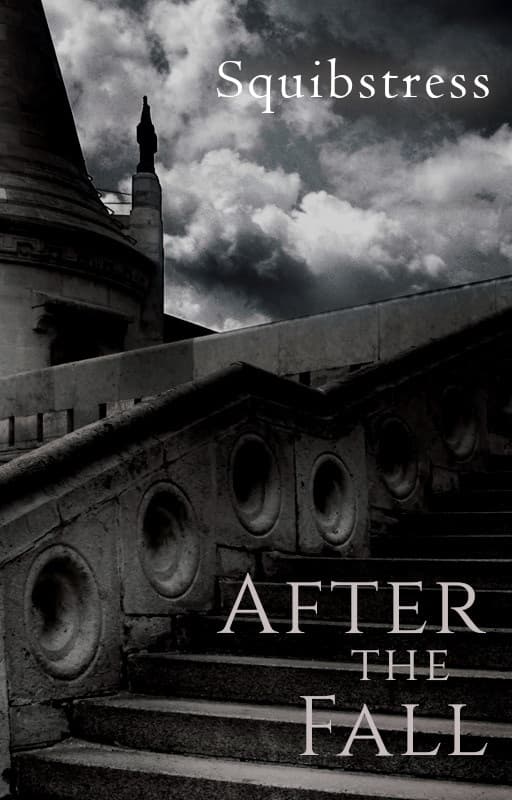
After Dumbledore’s fall from the tower, Minerva cleans house.
June 1997
She used the spell to open the secret door behind the bookcase that led to his private quarters. As she passed through it, she ignored the sitting room and went immediately to the bedroom. She did not allow herself the luxury of looking around at the room she had occasionally shared with her husband of nearly 40 years. Moving through the room methodically, she gathered up any evidence that she had ever been there: her toothbrush and comb from the vanity in the bathroom; her lavender-scented shampoo from the bath; her green silk dressing gown from the hook on the bathroom door; the extra glass from the tray on the bedside table. The items followed her through the room, floating behind her like a wake.
She charmed the large, heavy, Muggle-style painting of a younger, raven-haired witch in a light blue gown from the wall across from the bed and shrank it, taking meticulous care not to remember the heady month in which it had been painted. She then crossed to the wardrobe, opened it, and pushed his robes and trousers across the rod to cover the empty space, removing a plain, green dress and black over-robe from their hangers at the same time. Opening two drawers, she emptied the first of a few pairs of knickers, a brassiere, and a nightdress. She then removed a few men’s nightshirts from the other drawer, placing them haphazardly in the empty drawer. She was about to close the drawers when she paused.
After a moment’s hesitation, she took one of the nightshirts from the drawer and laid it gingerly over her arm. After shrinking the things she had collected—all but the nightshirt—she put them in her bag.
She moved back into the sitting room, picking up a tartan-emblazoned tin of ginger newts and stowing them in the bag. Crossing to a side-table, she opened the drawer and removed a photo album, avoiding glancing at the photograph on the cover of a tall, auburn-haired wizard and a younger, slender, dark-haired witch with their arms around one another. She turned the front cover away from her so she would not have to watch as the pretty witch in the picture rested her head against the man’s broad chest for a moment as he stroked her hair.
From the drawer below she removed a stack of letters tied by a green silk ribbon, their parchment aged and dry. She then went to the small settee in front of the fireplace and plucked up the old, wool tartan throw that festooned the back. These items she shrank and added to the bag.
When she was finished, she surveyed the room carefully to ensure nothing was left of their lives together.
She lifted her wand to shrink the nightshirt that was still draped across her other arm, then stopped. Instead, she lifted the cloth to her face and buried her nose in it, desperate to find some trace of him still clinging to it. There was none. Still, she could not bring herself to shrink it. Transfiguration changed a thing—perhaps not permanently or perceptibly—but changed the knowledge of a thing. One’s perceptions about the Transfigured object were altered as much as the object itself, she thought—and she should know.
She left the shirt unaltered and folded it into a neat square. Opening her robe and unbuttoning her blouse, she put the shirt against the skin of her chest. Her blouse quickly re-buttoned, she re-hooked her robe up to the neck.
She left his private quarters and went to his office to wait.

Lorem ipsum dolor sit amet, consectetur adipiscing elit. Ut elit tellus, luctus nec ullamcorper mattis, pulvinar dapibus leo.